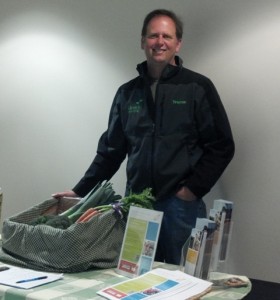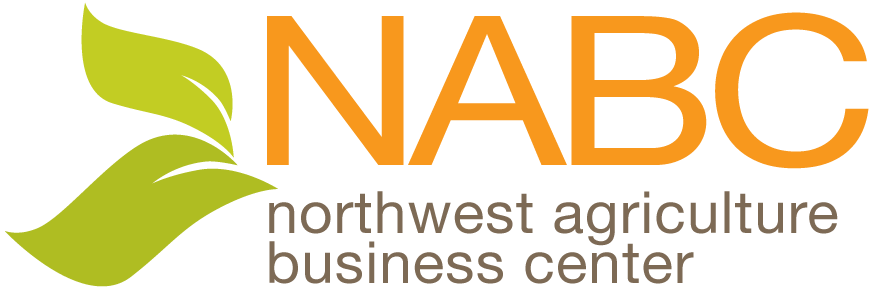NABC Unveils Farm-To-Workplace CSA Program at Providence Hospital

Continued from Spring 2012 Newsletter
NABC launched a new Community Supported Agriculture (CSA) program last week for staff members of Providence Hospital in Everett at the hospital’s Earth Day Celebration April 18th and 19th.
In a CSA program, consumers directly support local farms by pre-paying through subscription for shares of the seasonal harvest, giving farmers “seed money” to plan production around demand, while giving consumer access to fresh local produce.
Known as the Evergreen 2nd Party CSA, this pilot project departs from the traditional model in that there will be several farms taking part, with produce boxed and delivered by one of the growers (Klesick Family Farm), providing a wider diversity of produce to the subscriber than the typical single-farm program.
Providence employees subscribing to the Evergreen 2nd Party CSA will pick up their harvest shares at a drop off point just one block away from the Providence Colby Campus. NABC partnered with the Volunteers of America Food Bank down the street to provide a secure space for storage and distribution. Subscribers will have the opportunity to support the food bank by purchasing one or more additional boxes of produce through the CSA webpage, to be delivered during the harvest season. Any produce not claimed by the end of pick-up day will also be donated to the food bank.
The Evergreen CSA is modeled after the successful Nooksack Valley Farmers’ Cooperative launched last year by NABC at Peacehealth/ St Joseph Hospital in Bellingham, and is expected to bring a similar positive impact to Snohomish County. Discussing the project’s value, Project Manager and Snohomish County resident Sera Hartman said,
It’s exciting to think about what this means to the region. Local small-scale and family farms will benefit from increased sales and the security of pre-selling their production, the consumer benefits by receiving highest-quality, fresh produce which encourages healthy eating habits, the community through the reinvestment of local dollars into the local economy, and the environment from a reduction in the transportation miles and carbon emissions required to bring food from farm to table. Our collaboration with Volunteers of America Food Bank expands the benefits even further, beyond the subscribers and growers. It’s a good thing for the whole community.
We couldn’t agree more. We look forward to sharing more updates as the project develops.
